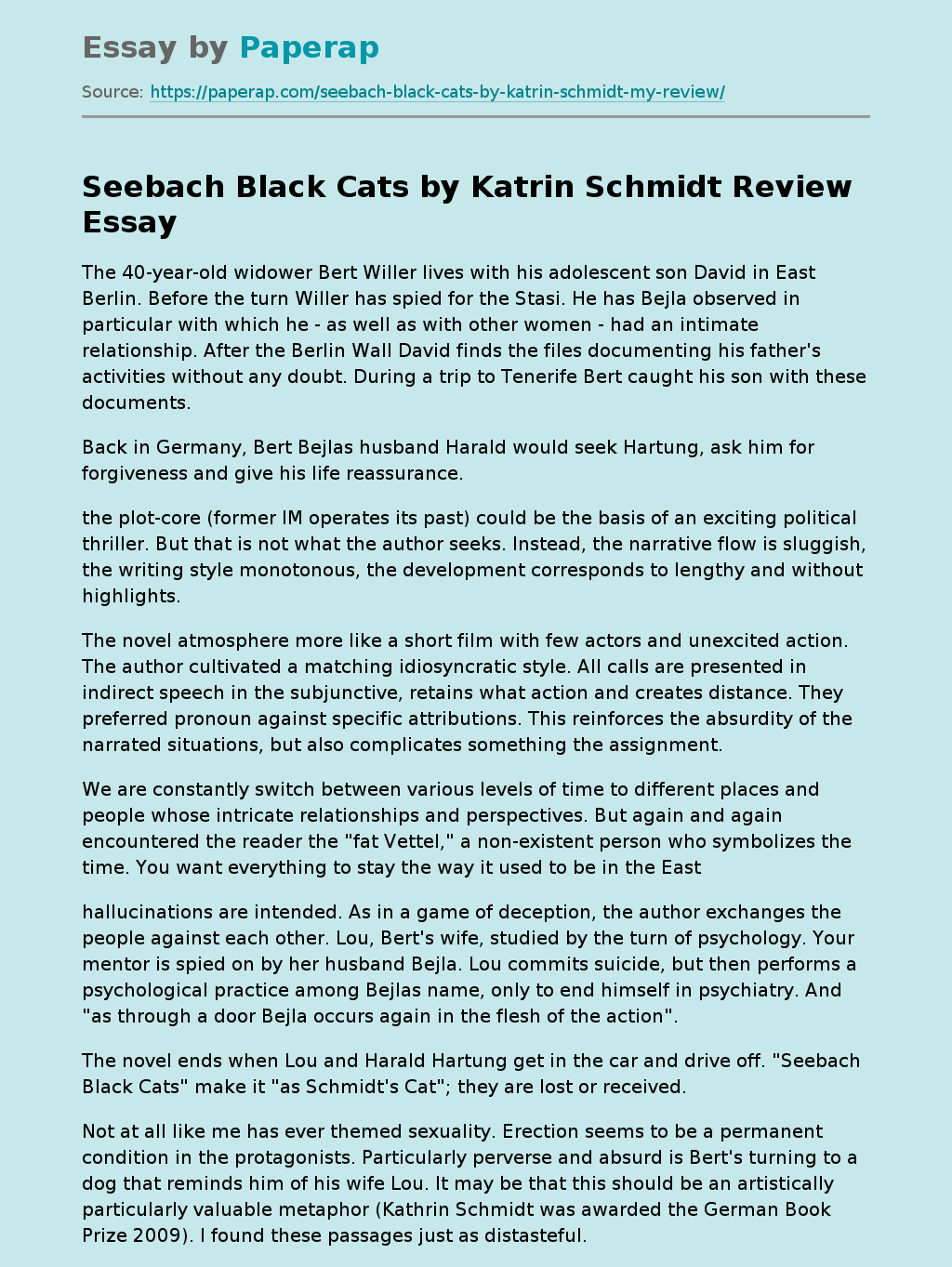The 40-year-old widower Bert Willer lives with his adolescent son David in East Berlin. Before the turn Willer has spied for the Stasi. He has Bejla observed in particular with which he – as well as with other women – had an intimate relationship. After the Berlin Wall David finds the files documenting his father’s activities without any doubt. During a trip to Tenerife Bert caught his son with these documents.
Back in Germany, Bert Bejlas husband Harald would seek Hartung, ask him for forgiveness and give his life reassurance.
the plot-core (former IM operates its past) could be the basis of an exciting political thriller. But that is not what the author seeks. Instead, the narrative flow is sluggish, the writing style monotonous, the development corresponds to lengthy and without highlights.
The novel atmosphere more like a short film with few actors and unexcited action. The author cultivated a matching idiosyncratic style. All calls are presented in indirect speech in the subjunctive, retains what action and creates distance.
They preferred pronoun against specific attributions. This reinforces the absurdity of the narrated situations, but also complicates something the assignment.
We are constantly switch between various levels of time to different places and people whose intricate relationships and perspectives. But again and again encountered the reader the “fat Vettel,” a non-existent person who symbolizes the time. You want everything to stay the way it used to be in the East
hallucinations are intended. As in a game of deception, the author exchanges the people against each other.
Lou, Bert’s wife, studied by the turn of psychology. Your mentor is spied on by her husband Bejla. Lou commits suicide, but then performs a psychological practice among Bejlas name, only to end himself in psychiatry. And “as through a door Bejla occurs again in the flesh of the action”.
The novel ends when Lou and Harald Hartung get in the car and drive off. “Seebach Black Cats” make it “as Schmidt’s Cat”; they are lost or received.
Not at all like me has ever themed sexuality. Erection seems to be a permanent condition in the protagonists. Particularly perverse and absurd is Bert’s turning to a dog that reminds him of his wife Lou. It may be that this should be an artistically particularly valuable metaphor (Kathrin Schmidt was awarded the German Book Prize 2009). I found these passages just as distasteful.
Seebach Black Cats by Katrin Schmidt Review. (2019, Nov 18). Retrieved from https://paperap.com/seebach-black-cats-by-katrin-schmidt-my-review/

